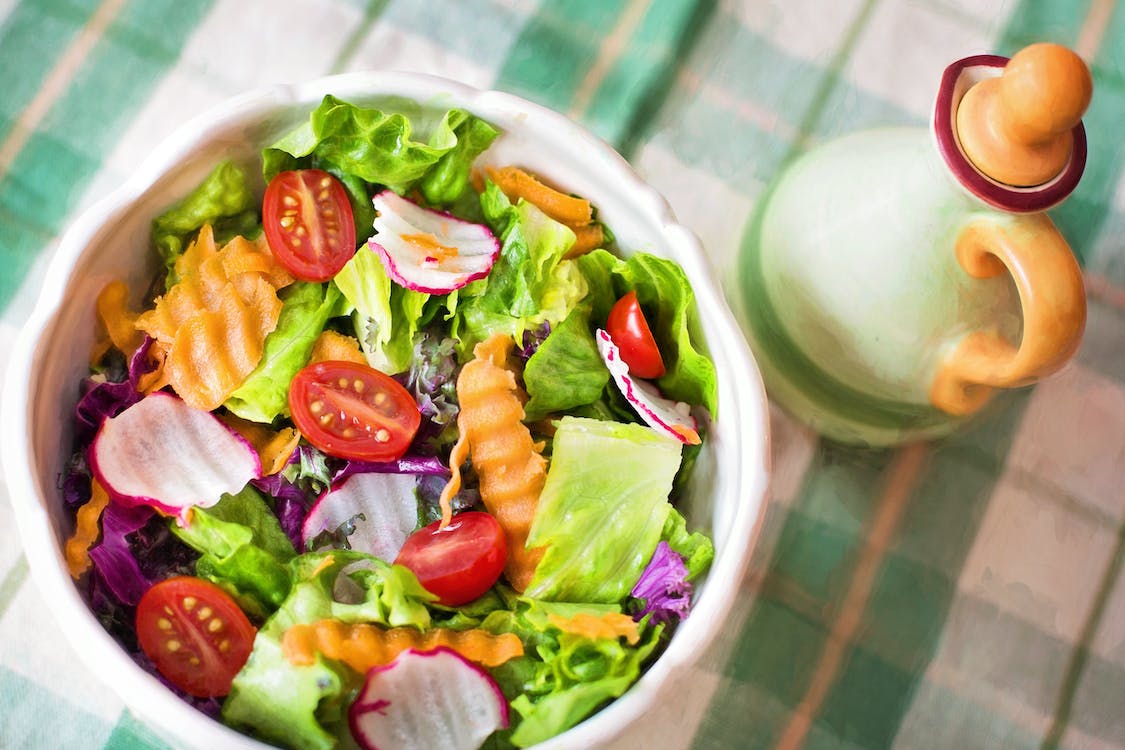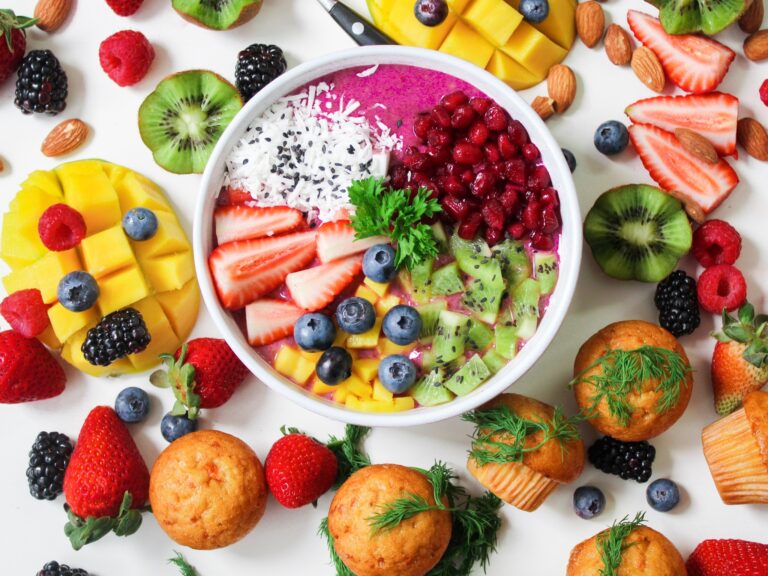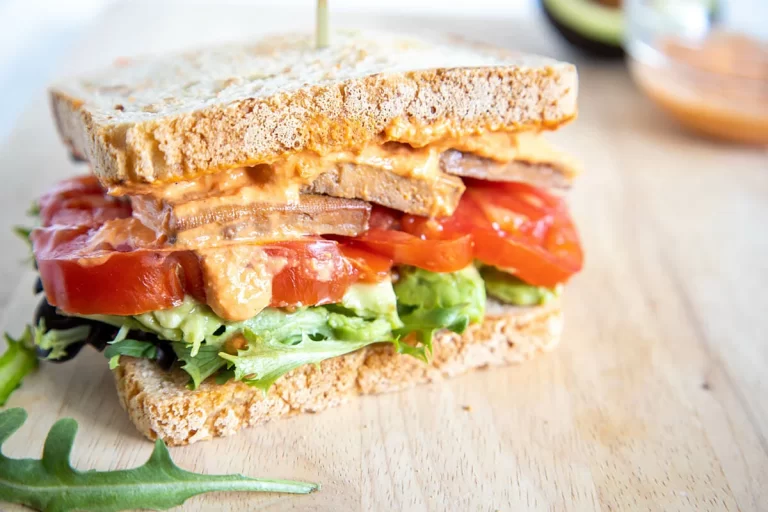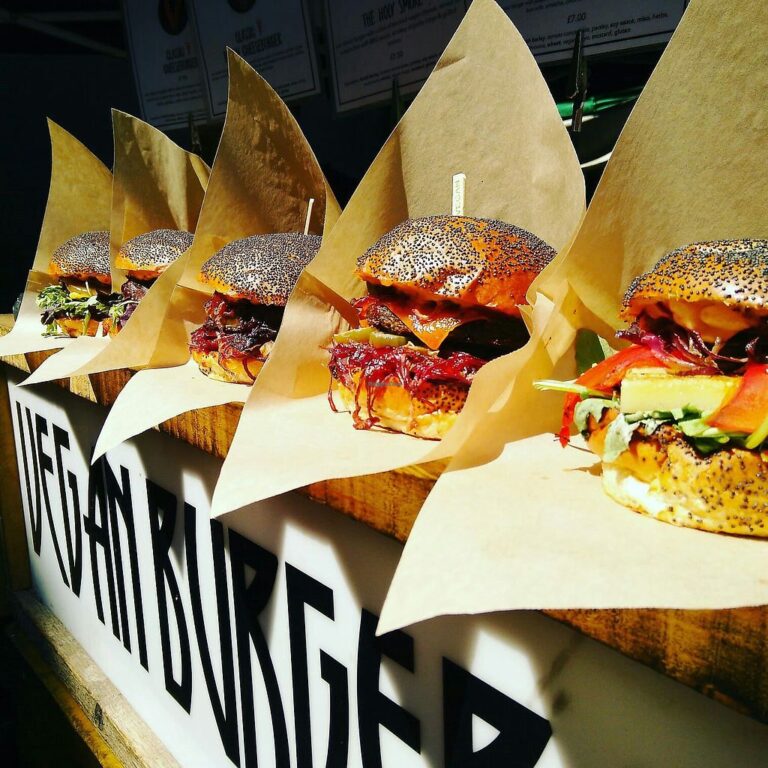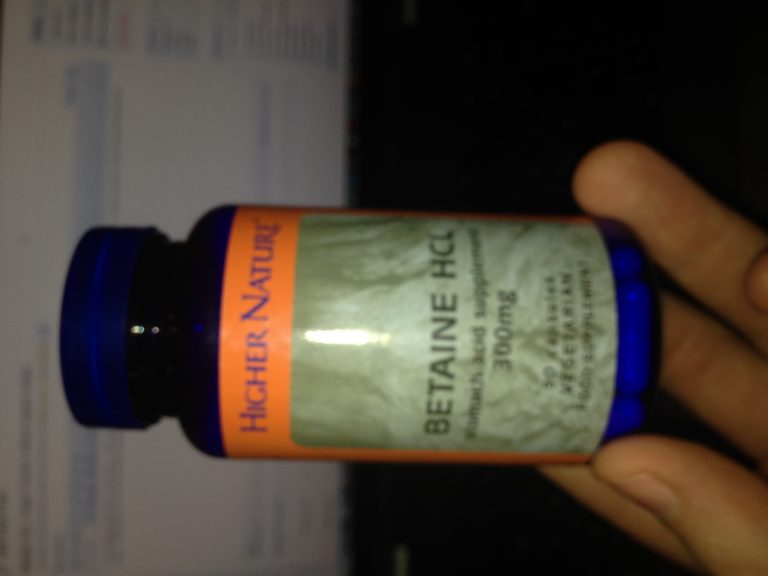Being Vegan Has Never Been Easier
Vegan cooking has never been more accessible with the abundance of alternative ingredients available that can be substituted in place of non-vegan items. Being Vegan has never been easier. From innovative egg replacement techniques to alternative fats that can replace butter, there are plenty of options to choose from.
In addition, numerous meat substitutes offer a rich source of protein and nutrients, debunking the common misconception that a vegan diet lacks essential nutrients. Additionally, coffee shops and restaurants now offer a wide range of dairy-free milk options to cater to individual preferences.
Moreover, comfort foods like pizza and mac and cheese are now accessible to vegans with the various plant-based cheese alternatives available. In essence, a vegan diet can be as diverse and flavorful as any other diet, with the added benefits of being cruelty-free and sustainable.
Red Meat
Red meat, including beef and lamb, is a significant source of protein that is essential for maintaining muscular and skeletal strength. It is also a rich source of iron, zinc, and antioxidants that are important for supporting the immune system. Additionally, red meat is an excellent source of vitamin B12, which plays a crucial role in DNA synthesis and maintaining the health of blood cells and nerves.
However, the consumption of red meat has been associated with numerous health risks such as heart disease and cancer. Additionally, the environmental impact of red meat production is concerning, as it contributes to greenhouse gas emissions and deforestation.
Therefore, it is recommended to consume red meat in moderation and to balance it with other protein sources such as poultry, fish, and plant-based options. By doing so, we can ensure that we meet our nutritional needs while also reducing the negative impact on our health and the environment.
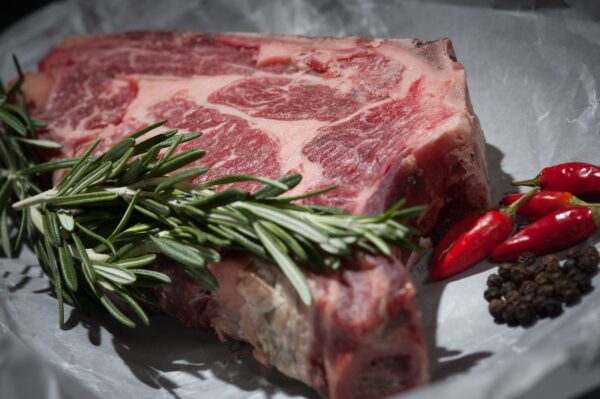

Red Meat Alternatives
Seitan: Seitan is a protein-rich meat substitute made from wheat gluten. With a protein content comparable to red meat, it is also a good source of iron and phosphorus. To achieve a meat-like flavor, seitan can be seasoned similarly to meat.
Legumes: While legumes such as black beans, pinto beans, and lentils do not taste like meat, they offer similar nutrients to red meat. Legumes are excellent sources of protein, healthy fiber, and carbohydrates, and are high in iron, zinc, and phosphorus, making them a great option for vegans.
Tempeh: Made from fermented soybeans, tempeh is another protein-rich meat substitute. Tempeh contains iron, zinc, phosphorus, and B vitamins, all of which are essential nutrients found in red meat. Tempeh can be used in stir-fries and sandwiches as a substitute for steak.
White Meat (Poultry)
White meat, such as chicken, is a highly nutritious protein source. Like red meat, it is packed with essential nutrients such as niacin, phosphorus, vitamins B6 and B12, calcium, iron, and zinc. For instance, a 100g serving of chicken breast provides one-third of the recommended daily intake of vitamin B6 and 86% of niacin. However, the worldwide popularity of chicken means that millions of poultry birds are slaughtered each year.
White meats such as poultry have been linked to chronic diseases due to their high content of cholesterol and saturated fat.
White Meat Alternatives
Tofu: Tofu is a protein-rich alternative to white meat that contains all nine essential amino acids. Although it may not provide the exact same nutrients as poultry, it is a good source of iron, calcium, manganese, selenium, copper, zinc, magnesium, and phosphorus.
TVP: Textured Vegetable Protein is a versatile and cost-effective alternative to both red and white meat. Made from dehydrated soy, it can be used in a variety of dishes and is a good source of protein and iron.
Cauliflower: Although it may not be similar in taste, cauliflower can be sliced and fried like chicken steak or coated in batter to create a chicken-style fried cauliflower. Cauliflower is a low-calorie option and contains 11% of the recommended daily intake of vitamin B6.
Pork
Pork is high in protein and contains many nutrients that promote a healthy body. Much like chicken, it contains all nine of the essential amino acids, which are vital for your body’s repair, plus iron, phosphorous, B12, B6, selenium, niacin and zinc.
Pork Alternatives
Jackfruit: Jackfruit is versatile and can be slow cooked in much the same way as pulled pork, and has a very similar texture.
It doesn’t contain much protein in comparison to the actual meats but it does have essential nutrients like magnesium and copper.
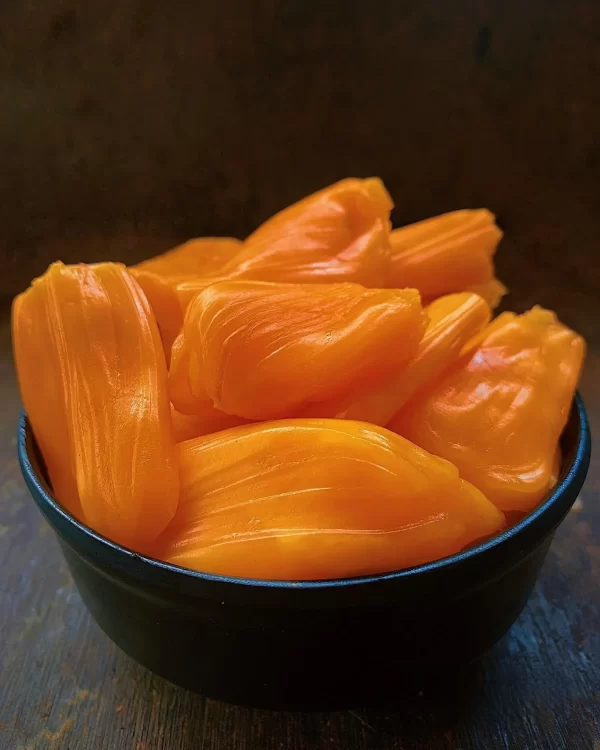

Eggs
Eggs are a versatile ingredient in cooking and baking, providing a source of protein, iron, vitamins, and minerals. However, ethical concerns regarding battery farming and the culling of male chicks have led many vegans to abstain from consuming eggs. Furthermore, eggs contain high levels of cholesterol, which can contribute to heart issues, high blood pressure, and other health conditions.
Eggs Alternatives
Aquafaba is the liquid that results from cooking chickpeas and is commonly used as a replacement for egg whites in cooking. During the cooking process, the carbohydrates and proteins from the legumes dissolve into the water, creating a liquid that mimics the properties of egg whites.
Ground flax, also known as flaxseed or linseed, can also serve as a substitute for eggs. By combining one tablespoon of ground flax with three tablespoons of water and allowing it to thicken for a few minutes, it can mimic the consistency of an egg. This mixture can then be used to replace each egg in a recipe.
Applesauce is a highly effective egg substitute due to its ability to bind ingredients together, add moisture, and provide a low-fat alternative. By using a third of a cup of applesauce to replace each egg in a recipe, one can achieve desirable results without any noticeable apple flavor.
Honey
Honey is a natural sweetener that boasts an impressive array of nutrients, vitamins, and antioxidants. In comparison to refined sugar, honey is considered a healthier alternative, known for its ability to lower cholesterol levels and manage blood pressure. However, recent concerns regarding the exploitation and decline of bee populations have prompted individuals to reconsider their consumption of this natural product.


Honey Alternatives
Maple syrup: As an alternative to honey, maple syrup can serve as a healthier substitute in baking. Not only does maple syrup contain antioxidants and calcium, but it also provides a surprising number of health benefits, including improving skin, and digestion, and reducing inflammation.
Golden syrup: While not as healthy as maple syrup, the golden syrup can still be used as a deliciously sweet and sticky option. It can add a flavorful touch to dairy-free porridge or be drizzled on top of vegan pancakes. It is important, however, to consume golden syrup in moderation.
Butter
Butter is a highly fatty ingredient that’s versatile in its use, making it an excellent choice for various recipes and as a critical component in many baked goods, including cakes. It provides a rich flavor and is commonly used as a spread to add taste to bread, crackers, and other items.


Butter Alternatives
If you’re looking for a vegan alternative to butter, margarine is an excellent option, but it can make cakes slightly oily, and depending on the brand, it may affect the taste of buttercream in baking. However, it has the advantage of being softer than real butter and lower in calories, which can be beneficial for baking.
Another substitute for butter in cake recipes is oil. There are numerous delicious cake recipes that use oil instead of butter. Cakes made with oil tend to be lighter in texture and moister than those made with butter. Sunflower oil, olive oil, groundnut oil, coconut oil, vegetable oil, avocado oil, and other oils are often used in these recipes.
Cheese
Cheese is a great source of protein, fat, and an array of essential vitamins and minerals, including calcium, zinc, B2, B12, magnesium, and phosphorus. It’s a versatile ingredient that adds flavor to many dishes, acting almost like a seasoning, and can also help bind ingredients when cooking. However, it’s important to note that cheese is very high in fat, and cholesterol.
Cheese Alternatives
Nutritional yeast flakes are deactivated yeast that come in either a yellow powder or flake form. They have a slightly cheesy flavor, making them a popular ingredient in recipes that require dairy-free cheese sauces for dishes like macaroni and cauliflower cheese.
For a vegan-friendly cheese substitute, there are options like sliced or grated vegan cheese that can be used as a topping on pizza or in sandwiches and toasties. Although it doesn’t melt in the same way as traditional cheese, it’s a fairly close replacement that continues to improve as vegan cheese options evolve.
Milk
Milk, derived from cows, is a nutrient-rich beverage that provides essential calcium for strong bones and optimal blood pressure. However, the dairy industry faces controversy due to the high levels of hormones and fat found in cow’s milk, as well as ethical concerns surrounding the treatment of dairy animals
Milk Alternatives
“Soy milk, being a plant-based milk, has a thicker consistency than other alternatives and higher protein content. However, it lacks in calcium and other nutrients and may curdle in hot beverages, necessitating a change in preparation methods.
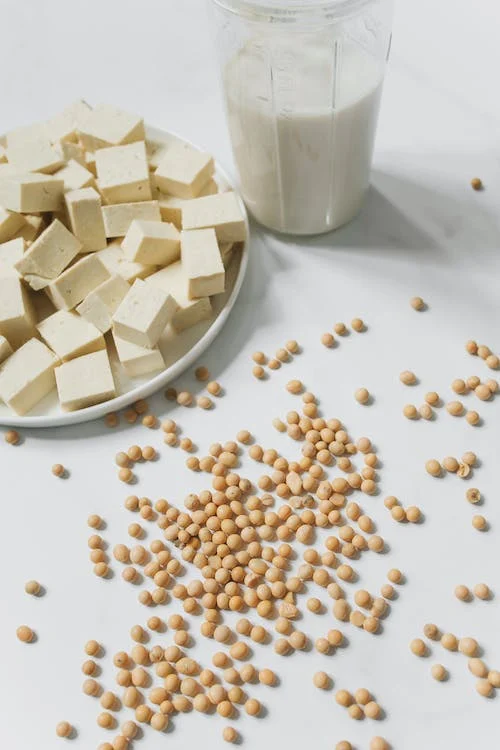

On the other hand, almond milk, while less protein-rich than cow’s milk, can taste diluted initially. Nevertheless, it offers 56% of the recommended daily intake of calcium in a single cup.
Oat milk, considered the creamiest of non-dairy substitutes, is a delicious and nutrient-dense option. With over ten times the calcium content of soy milk and more protein than almond milk, it is ideal for frothy barista-style coffee beverages.”
